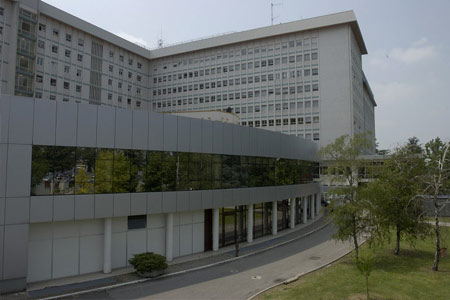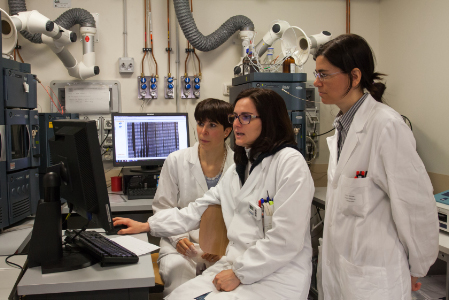It is well established that CD4+ CD25+ regulatory T cells (Tregs) inhibit autoimmune pathology. The use of Tregs in the treatment of immunopathologies such as colitis, rheumatoid arthritis or multiple sclerosis is appealing and, if possible, would represent a major advance in the treatment of such diseases. The present project proposed a multiparametric approach allowing us to analyze the role of glycans in the control of suppressive action exerted by CD4+CD25+ cells during EAE. Preliminary data obtained in our laboratory strongly indicated that PSGL-1 (P-selectin glycoprotein ligand-1) and the fucosylation of its glycans by fucosultransferases (FucTs) are involved in the suppressor activity mediated by CD4+CD25+ cells during MOG-induced EAE. Objective I focused on the role of PSGL-1 and FucTs in the suppression exerted by CD4+CD25+ Tregs on active and transfer EAE. Furthermore, we investigated the role of PSGL-1 and FucTs in the inhibition of proliferation and cytokine production by CD4+CD25+ Tregs, thus we clarified the role of PSGL-1 in cell-cell contact between Tregs and autoreactive lymphocytes. Moreover, we clarified the role of PSGL-1 and FucTs, as well as the combination of selectins-mucins and integrins-immunoglobulins dictating the selective recruitment of Tregs cells into the inflamed brain. The knowledge of the molecular mechanisms controlling the recruitment of Treg into the brain is of critical importance, as potentially new therapies targeting migratory capabilities of T cells should not interfere with the extravasation of Tregs into the brain. Our grant proposal helped to characterize Treg subsets with specific migration behavior into inflamed microcirculation, that could have a stronger therapeutic potential in demyelination diseases. Thus, our project will help to understand how we can better manipulate CD4+CD25+T cells and other suppressor populations before their potential clinical employment.







